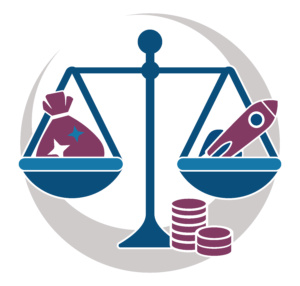Discover the Working Groups!
SG[France]2024 will host four Working Groups (WGs). All revolving around this year’s space sustainability theme, students and young professionals will hence have the opportunity to discuss with experts on four topics: “Sustainability of Space Industries”, “Sustainability of Space Operations”, “Space Applications for Global Sustainability” and “Economics & Regulation for Space Sustainability”. Each WG will be subdivided in several roundtables. Please find more details below!
WG1 – Sustainability of Space Industries
WG Coordinator: Thomas BELLIER

How much does the space industry contribute to environmental issues on Earth? In this Working Group, we will discuss the current impacts of the space industry on Earth, and more importantly how to properly assess it. This may help us understand the future impacts, and in doing so find ways to minimize it and ensure the sustainability of the industry for the Earth.
Roundtable 1: Ground and support infrastructure
While being the most visible part, the launch vehicle and satellite are only a small part of the products the space industry uses daily. Many ground and support activities are essential and contribute significantly to the industry’s environmental impact on Earth. This sub-table focuses on those less visible activities that need to be properly accounted for and may have more ways to be optimized than the flight hardware itself.
Roundtable 2: Space Segment
While residing in space during their missions, the satellites themselves require very specific and unique materials, components, and non-standard parts that may have environmental impacts during the design, production, and testing of space hardware. Moreover, the reentries do impact the atmosphere. This sub-table focuses on the space segment and the specific assessments to understand its impact and find ways to reduce it.
Roundtable 3: Launch Segment
The spectacular plumes coming out of a rocket are a clear mark of their atmospheric impact. However, the interactions between the exhaust and the atmosphere are complex and not always known, and the launch event itself is only a short part of the launch vehicle’s life, which includes design, manufacturing, transport, and testing. This sub-table focuses on the launch segment, its specific hardware, interactions with the Earth’s atmosphere during ascent, and ways to make launchers sustainable.
WG2 – Sustainability of Space Operations
WG Coordinator: Jordan WOMBA

As the number of operating satellites and orbital debris is rapidly increasing, questions relating to the long-term sustainability of in-space operations are becoming more pressing. This Working Group will explore topics such as collision avoidance, in-orbit servicing, orbital debris removal, and the novel challenges posed by mega-constellations.
Roundtable 1: Collision Avoidance
Roundtable 2: In-Orbit Servicing
Roundtable 3: Orbital Debris Removal
Roundtable 4: Mega-Constellations
WG3 – Space Applications for Global Sustainability
WG Coordinator: Antoinette OTT

Problematic: How to get the most out of satellite data and harness them to serve global sustainability more effectively?
Data coming from satellites have the potential to help us build a more sustainable world, but remain underused in practice outside the scientific community. The working group will delve into a case study (e.g., related to climate mitigation and adaptation in cities) to investigate the remaining issues hindering the use of satellite data for sustainability, and make recommendations on how to overcome them. Join this roundtable if you want to take part in further bridging the gap between satellite data and society!
Roundtable 1: Identifying the Users
The roundtable will explore the different types of users who might benefit from satellite data, for which purposes, and identify the possible difficulties in integrating satellite data into day-to-day users’ practices.
Roundtable 2: Identifying the Contributions of Science and Technology
The roundtable will investigate the different data and technologies that can already be leveraged to build applications for sustainability. The added value of new space constellations compared to existing ones will also be examined. Finally, the roundtable will explore how the scientific community could take part in new forms of interactions with society to make satellite data available and usable for all.
Roundtable 3: Creating New Business Models
This roundtable delves into the business aspects of creating sustainability-driven applications: what types of organisations are needed to support sustainability-driven applications? how to build sustainable business models? What are the remaining issues? How to overcome those challenges?
Roundtable 4: Building International Collaborations
Access to many global space assets is limited by geopolitical, commercial or bureaucratic barriers. The International Charter “Space and Major Disasters”, initiated in 2000, provides a system for openly sharing life-saving space data across borders for the benefit of those affected by natural or man-made disasters. Could we take this charter as a source of inspiration to imagine new forms of international collaborations for global sustainability? For example by extending this charter to other sectors and taking a more proactive approach to data sharing for the common good?
WG4 – Economics & Regulation for Space Sustainability
WG Coordinator: Emeric VILLETTE

This Working Group is about understanding and shaping the economic and regulatory aspects crucial for sustainable space activities. We aim to explore and recommend strategies that balance the growth of the space economy with responsible space usage. It’s a conversation about finding the right mix between advancing economically and maintaining space as a safe and sustainable environment for all.
Roundtable 1: Economic Impact of Space Debris
This roundtable examines how space debris affects the economy of space, particularly in terms of risks for active satellites and the costs associated with mitigating such debris. The discussion will focus on assessing the current and future costs of space debris and finding economically viable solutions to reduce them.
Roundtable 2: Sustainable Funding for Space Projects
This problematic explores funding models and economic incentives that can promote sustainability in space projects. This includes examining public and private investments, public-private partnerships, and how these models can be directed to support sustainable and responsible space initiatives.
Roundtable 3: Updating International Regulations for the Modern Space Era
This roundtable tackles the urgent need to revise space regulations to match the rapid advancements in the space industry. With the increasing frequency of rocket launches (launch licensing) and the rise of new space enterprises, existing rules are becoming outdated. Our objective is to identify areas needing updates and collaboratively formulate targeted recommendations. These will aim at safe, sustainable, and equitable space activity, addressing current challenges and setting the course for a responsibly managed space sector. Join this crucial conversation to contribute to shaping the future of space activity governance.


